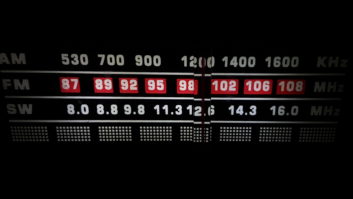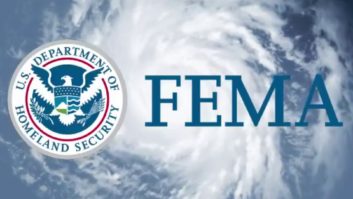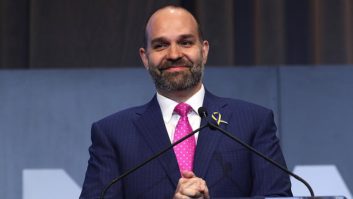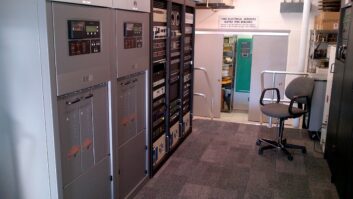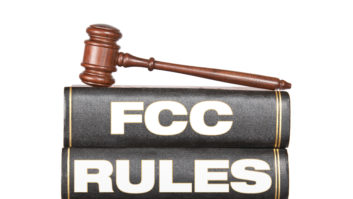FCC Commissioner Nathan Simington met with members of the National Association of Farm Broadcasting during their 79th annual convention on Nov. 16. In his remarks, Simington emphasized the importance of AM radio and outlined the steps needed to ensure its future in a changing market.
Simington began his remarks with a more personal anecdote. He said he grew up on a farm in Saskatchewan, Canada, where “besides the trade papers, there was no media institution more trusted to inform us about all we needed to know than AM radio.”
“AM radio was for us then, and is for the more than three million farmers across the U.S. now, an indispensable resource,” he said.
Simington said AM radio is the “essential spine” of the Emergency Alert System and “lets you know what’s happening not just globally, but locally — from school closures and traffic delays to city council and county management meetings and high school sports games.”
He comments on the growing populations that view AM radio as a “dead” and outdated technology, and why he believes that to be a falsity.
“They say that the commission should reallocate the band to a different use — well. Okay. Let’s play that out. A dead technology? Don’t tell farmers that. Most farmers listen to AM radio.”
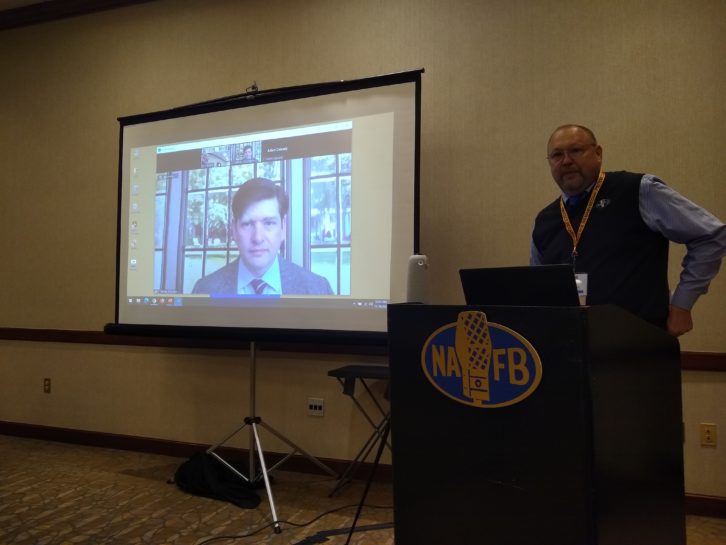
Simington said three-quarters of farmers listen to radio five days per week with more than 60 percent listening to AM sources.
He said because a lot of important emergency signaling infrastructure is built into it — not to mention that it remains a trusted source for farmers — it’s important to preserve AM radio. Simington said the industry can do that by not “crushing radio with regulatory fees.”
[Related: “Radio’s FCC Fees Go Up, Though Less Than Expected“]
“Let’s call on Congress to revamp the way we collect regulatory fees — a methodology that is fairer and more accurate. A methodology that reflects the work that staff at the commission actually do.”
Simington said broadcasters can also help preserve AM radio by “encouraging auto manufacturers to double down on AM reception,” especially as the market changes with the rise of electric vehicles.
“The next generation of autonomous cars and trucks, exciting as it is, will rely critically on spectrum for sensing and steering technologies. The commission should not be shy about asking auto manufacturers to serve the public interest by continuing to serve AM radio listeners, just as the commission helps the auto industry to make possible the next generation of innovation in automotive technology.”
[Related: “Wireless EV Charging Could Pose Threat to AM Reception“]
Finally, he urges the FCC to “have a critical look at AM radio reception on a technical level.”
The NAFB tells Radio World that broadcasters also talked with the commissioner about the EAS Certification Proposal, concerns over year-round daylight saving time — and how that would adversely affect the rural AM stations farmers rely on — and concerns over the Ford F150 EV proposal to take out AM radios.
This year’s NAFB Convention was held at the Westin Crown Center in Kansas City, Mo. on Nov. 16–18.
Find Simington’s full remarks on the FCC website.
